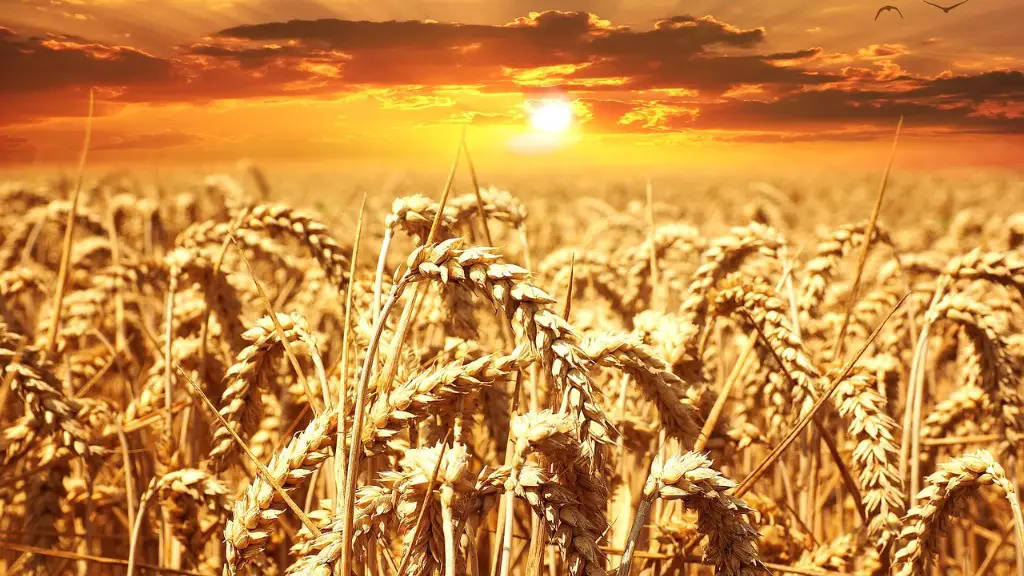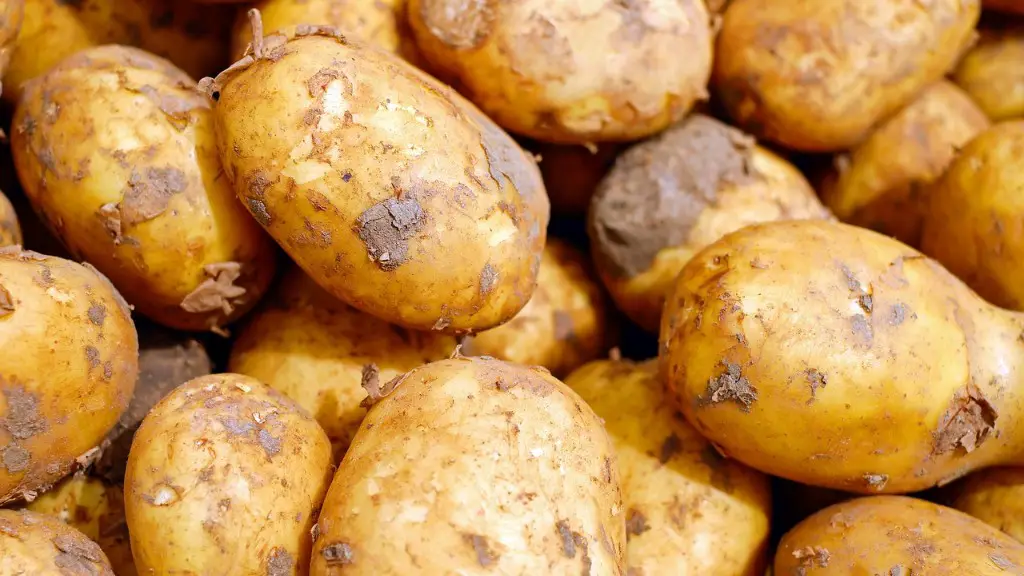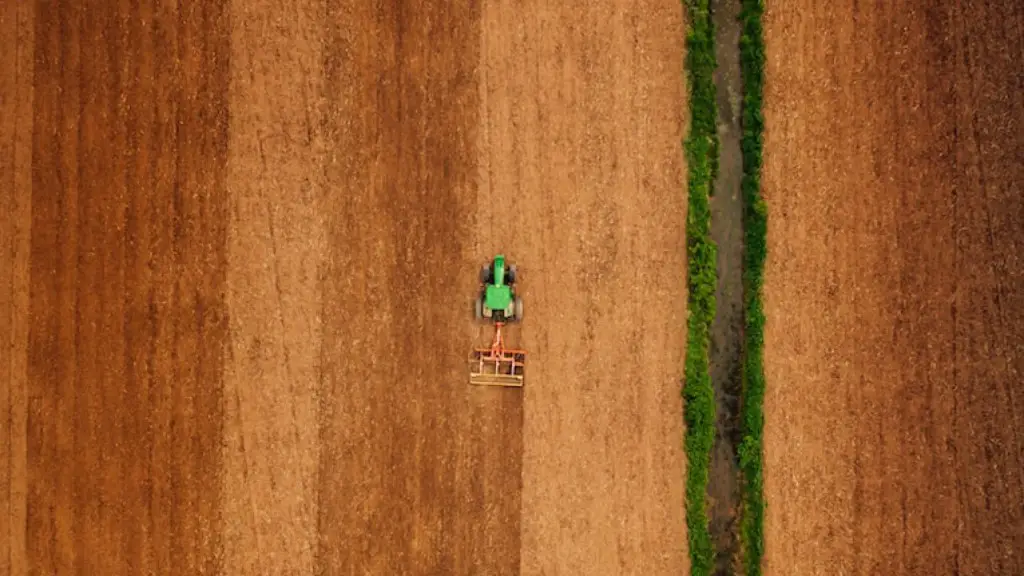If you want to learn agriculture in India, you will need to find a good agricultural school. There are many agricultural schools in India, so you will need to do some research to find the one that is right for you. Once you have found a good agricultural school, you will need to complete an application and submit it to the school. Once you have been accepted into the school, you will need to complete a course of study. After you have completed your course of study, you will be able to take the final exam and become certified in agriculture.
There is no one definitive answer to this question, as there are many ways to learn agriculture in India. However, some ways to learn agriculture in India include studying at an agricultural college or university, working on a farm, or volunteering with an agricultural organization. There are also many agricultural extension programs in India that provide training and education to farmers and others interested in learning more about agriculture.
How can I study agriculture in India?
Agricultural courses are designed to provide students with the knowledge and skills necessary to pursue a career in the agricultural industry. There are a variety of agricultural courses available at the undergraduate, graduate, and PhD levels, as well as short-term courses that can be completed after completing class 10th. Agricultural courses can be studied as full-time, part-time, or correspondence/distance programmes.
There are many agriculture courses available after 12th standard. Some of the best ones are mentioned above. All of these courses offer a great foundation in agriculture and related sciences. Students can choose the course which best suits their interests and career goals.
What is the best way to learn agriculture
If you’re looking for a way to get involved in agriculture and farming, there are a few different options available to you. You can look for government-run programs that cover agriculture and farming, join a beginning farmer training program, or look for a summer job as a research assistant for a college or university that holds research trials on one or more research farms. Whichever route you choose, you’re sure to gain valuable experience in the field of agriculture.
It is true that agriculture jobs are well paid, and this is reflective of the importance of the work that these professionals do. They provide a vital service to society, and their work is essential to the economy and to the food supply. As such, their salaries are commensurate with their importance.
How much does it cost to study agriculture in India?
The BSc agriculture fees ranges between INR 2-3 lakhs and the salary initially falls between INR 3-5 LPA. Some of the common BSc agriculture jobs include Agriculturist, Agriculture Officer, Assistant Plantation Manager, Agriculture Technician, Agricultural Research Scientist, etc.
The sector of agriculture is one of the most prosperous ones in the economy of India. This is the reason why more and more students are now interested in completing a degree in this field. There are many promising prospects that you can explore in both the private and public sectors by completing any of the major Agriculture courses.
Which state is No 1 in agriculture in India?
Uttar Pradesh is a leading farming state in India, known for its production of bajra, rice, sugarcane, food grains, and wheat. The state is also one of the top wheat producing states in India, followed by Haryana, Punjab, and Madhya Pradesh.
In terms of agricultural productivity, Uttar Pradesh beats Maharashtra and Gujarat. The total production of food grains in Uttar Pradesh is 4322 million tonnes, which is significantly higher than the production in Maharashtra and Gujarat. This is due to the higher yield per hectare in Uttar Pradesh, as well as the larger area under cultivation in the state. In addition, the climate in Uttar Pradesh is more favourable for agriculture, with more rainfall and warmer temperatures.
Which agriculture job has highest salary in India
There are many rewarding and high-paying career options available in the field of agriculture. Agricultural operations managers play a vital role in overseeing the production of food products, while food scientists work to develop new and innovative ways to improve the quality and safety of food products. Agronomy sales managers play a key role in connecting farmers with the necessary resources and information to improve crop production, and agricultural engineers work to develop new and improved methods of food production. Agricultural economists work to study and analyze the economic impact of agriculture on the national and global economy, while agricultural lawyers work to ensure that farmers and other agricultural professionals are in compliance with the law.
The length of agricultural studies differs depending on the university. However, most students can expect to receive a bachelor’s degree within three years and a master’s degree within two years. For more ambitious students, a Ph.D. can be acquired within four years.
Can I study agriculture online?
The Agricultural National Diploma | Certificate from our Online Campus and customised Instructor-led courses are designed to meet the needs of students, emerging farmers, farm-workers and established farming enterprises. Whether you’re looking to start your own farm, or gain skills to work on one, this program will give you the foundation you need to succeed.
Agriculture is a scientific and complex field that requires a lot of knowledge and skill. Those who study agriculture appreciate the coursework and understand how difficult it can be. The subjects studied in agriculture are not simply one plus one, but encompass a variety of disciplines and provide students with hands-on experience.
Do farmers make good money in India
The average salary in India is ₹19,156 per month. This figure is based on data from the Indian government’s National Sample Survey Office. The average salary may vary depending on the industry, geographical location, and other factors.
Small and fragmented land holdings:
One of the major problems faced by Indian agriculture is the small and fragmented land holdings. This results in low productivity as farmers are unable to invest in modern inputs and technology. There is also a lack of economies of scale.
Seeds, Manures, Fertilisers and Biocides:
Another major problem faced by Indian agriculture is the scarcity of good quality seeds, manures, fertilisers and biocides. This has resulted in low crop yields and farmer incomes.
Irrigation:
Lack of irrigation is another major problem faced by Indian agriculture. This has led to water stress and crop losses.
Lack of mechanisation:
Lack of mechanisation is another major problem faced by Indian agriculture. This results in high labour costs and low productivity.
Soil erosion:
Soil erosion is another major problem faced by Indian agriculture. This results in loss of fertility and productivity.
Agricultural Marketing:
Lack of proper agricultural marketing is another major problem faced by Indian agriculture. This has led to low prices for farmers and middlemen making huge profits.
Scarcity of capital:
Scarcity of capital is
Which country is best for studying agriculture?
There are many countries that offer excellent programs in agriculture, but some stand out above the rest. The United States, Canada, Fiji, Hungary, and the United Kingdom are all great places to study agriculture. Each country has its own unique strengths, so it’s important to do your research to find the right fit for you.
The United States is a world leader in agriculture, so it’s no surprise that it offers some of the best programs in the field. If you want to study agriculture in the US, you’ll have your pick of top-notch schools. Canada is also a great option for agriculture studies, thanks to its strong agriculture industry and research capabilities. Fiji is a hidden gem when it comes to agriculture studies, offering a unique tropical climate and diverse agriculture options. Hungary is a great place to study agriculture if you’re interested in learning about sustainable and organic farming practices. Finally, the United Kingdom is an excellent choice for those interested in learning about the latest advances in agriculture technology.
There are a number of universities in India that offer good programs in agriculture. Here are six of the best:
1. University of Agricultural Sciences, Bangalore
2. Acharya NG Ranga Agricultural University, Hyderabad
3. Chaudhary Charan Singh Haryana Agricultural University, Hisar
4. National Dairy Research Institute, Karnal
5. Tamil Nadu Agricultural University, Coimbatore
6. SKUAST, Jammu
Warp Up
There is no one-size-fits-all answer to this question, as the best way to learn agriculture in India depends on the specific context and needs of the learner. However, some tips on how to learn agriculture in India include studying the local climate and understanding the water cycle; learning about the different types of soil and their properties; and gaining knowledge about pests, diseases, and crop management practices. Additionally, it is important to have access to reliable information sources, such as extension services, agricultural research institutes, and farmers’ organizations.
In conclusion, agriculture in India can be learned through a number of ways such as books, internet, and word of mouth. There are many different types of agriculture, which can be learned by doing research on the internet or by talking to farmers. Agriculture is an important aspect of the economy and culture in India, and it is important for people to learn about it.





